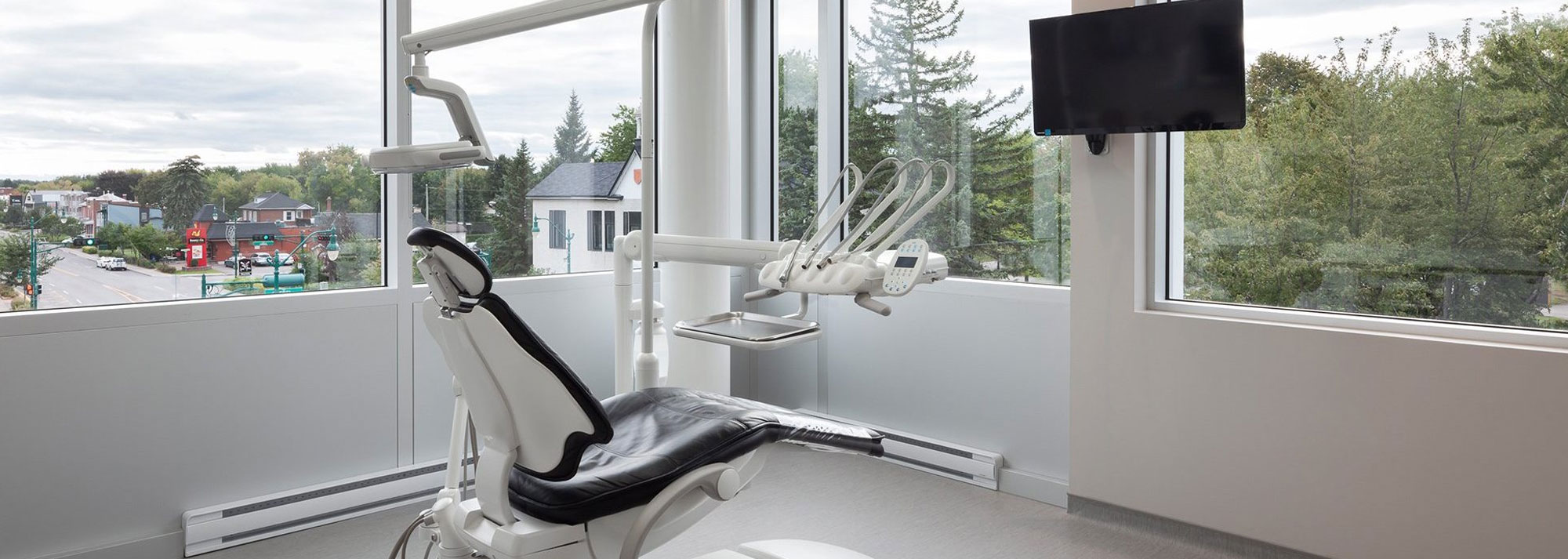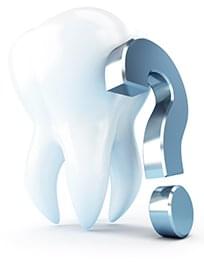
Surgery with intravenous sedation
General questions
What is the difference between a dental surgeon and an oral & maxillofacial surgeon?
An oral and maxillofacial surgeon is a dentist who underwent specialty training after dental school ranging from 5 to 7 years, in order to deepen his knowledge in the field of surgery in the mouth, jaws, and faces of the bone.
The practice of an oral and maxillofacial surgeon is split between a private office, which is mainly for interventions under local or intravenous anesthesia (wisdom tooth extractions, implant surgery) and the hospital. Hospital-based surgeries are mainly for major surgery under general anesthesia (jaw repositioning surgeries, facial bone fractures after trauma).
I have an emergency after surgery outside of office hours, what should I do?
We have a call service that we offer to our patients who have undergone surgery within our office. Please leave a message and we will return your call at our earliest convenience.
Are X-rays dangerous for my health?
We use numeric technology, which allows for less radiation and in turn decreases your health risks related to radiation.
Can I smoke after my surgery?
Smoking can dislodge the blood clot, which can cause persistent bleeding. The risks and complications are also increased such as pain and infections. We recommend not smoking for a minimum of 48 hours, ideally 5 days.
Questions
concerning surgery
Do we feel pain during the procedure?
During the procedure, you should not feel any pain. However, there are times that certain manipulations performed during the surgery you may create pressure or noises. Intravenous sedation is a great way to minimize or even avoid these issues.
My pain is not controlled. What can I do?
Make sure you take all prescribed medication. If the pain persists, medications and/or dosages may be adjusted or even modified. If this is the case, please contact the office directly.
I underwent surgery 2 days ago and I find that I am even more swollen today. Is this normal?
After surgery, the maximum of swelling is usually seen after 48 hours approximately. It usually tends to decrease as of the 3rd day post-operatively.
I am more swollen on 1 side of my face. Is this normal?
It is rare for swelling to be identical on both sides, therefore, you should not worry if one side is more swollen than the other.
I underwent surgery 4 days ago and my swelling persists. Is this normal?
After 4 days, this may be a sign of infection. It is common to notice that the swelling is hard and painful to touch. A bad taste may be present at the same time in your mouth. Fever may or may not be present. If this is the case, please communicate with our office.
I bite my cheek because of my swelling and it is difficult to bite my teeth together, is this normal?
If the swelling is significant, this is a possibility and can happen at times. Normally the swelling will start decreasing by the 3rd postoperative day. In the interim, try and minimize chewing and stick to soft foods preferably (Refer to: Diet after surgery).
Once the swelling has subsided, my cheek started to swell again. Is this normal?
It is not normal for the swelling to reappear and this phenomenon is most likely related to an infection. If this is the case, please communicate with our office.
I have a bad taste in my mouth. What do I do?
We often have bad breath the first days following surgery and this situation typically subside after a thorough oral hygiene review of instructions (Refer to: What to do after surgery). However, if this situation persists beyond 3 days after surgery and is accompanied by firm swelling and pain to touch, this may be a sign of an infection. If this is the case, please communicate with our office.
After my surgery, I have a lot of nausea. What do I do?
If you are a patient who suffers of this condition, the following is recommended:
Stop taking narcotic pain medicine (hydrocodone, hydromorphone, codein). Tylenol and anti-inflammatory medication may be continued because it is rare that these classes of medications will create nausea or vomiting symptoms.
If you do not have any allergy, Gravol 100mg can help. You can expect some drowsiness. If this is not desired, there is the option for non-drowsy natural Gravol which also can be found over the counter at your pharmacy. It can be taken either orally or by suppository. Rectal administration may be preferable because it can be absorbed faster, especially if vomiting is a bug issue.
Wait 45 minutes then attempts to eat small portions of food. If tolerated, gradually increase your diet.
These measures help the majority of post-operative nausea and vomiting related symptoms.
Will my sutures fall out if I vomit (throw up)?
No, the sutures placed tend to be solid enough to withstand those forces and there is therefore no danger for the incisions to open. However, the pressure created when we vomit may create some bleeding which is controllable with local measures.
Which types of foods can I eat after my surgery?
Refer to: Diet after surgery.
I just lost a suture the day of my surgery. What do I do?
There is nothing to worry about, because the surgeon tends to place more sutures than actually necessary. The additional sutures will allow for a complete healing.
When I open my mouth, I feel like the cheek is sowed to my gums. What should I do?
The incision to remove wisdom teeth does involve a portion of the cheek, it is therefore normal to find sutures at this level. Swelling may worsen this feeling of discomfort. This sensation will disappear once the swelling subsides and the sutures resorb.
I still have sutures left 2 weeks after my surgery. What should I do?
Only if indicated otherwise, the sutures used in the majority of cases are self resorbing. The gentle brushing of the teeth that starts on the 3rd postoperative day will usually allow for the sutures to fall out. If you find that the sutures are disturbing, we will be glad to remove them for you if indicated. If this is the case, please communicate with our office.
My gums seem to be receding next to my last tooth after my surgery. What should I do?
With the healing process, the gums will typically reattach itself. In the meantime, follow attentively the hygiene instructions given to you (Refer to: What to do after surgery).
I see white on my incision. What should I do?
The white material you see is not an infection. It is common to see a white discoloration of the gums after surgery; this typically returns to its normal color once the healing process is completed. It is very important to follow attentively the hygiene instructions given to you (Refer to: What to do after surgery).
One week after the extraction of my wisdom teeth, I feel like there is a hole at the surgical site. What should I do?
The hole you feel is always present but minimally visible. Do not forget to rinse your mouth well after meals especially and use the syringe given to you at the office as of the 10th postoperative day. The gums will gradually close and will typically look like it was prior to your surgery.
After surgery, can I return to school or work right away?
It all depends on the type of procedure you underwent and the recommendations of your surgeon. It is recommended not to return to school or work on the day of surgery. There are certain circumstances which may necessitate several days of rest. This may be discussed during the initial consultation.
Can I do or play sports the next day after my surgery?
Returning to a sports activity depends on the type of sport you play and the type of intervention you underwent. Rest holiday may extend from one day to multiple days. You may review these questions during your initial consultation date.
Questions concerning
dental implants
Why do I need to see 2 different professionals for my implant treatment?
The treatment is composed of 2 distinct steps:
- The surgical phase: placement of the dental implant and use of bone or soft tissue grafting material as needed will be performed by our team.
- The prosthetic phase (fabrication of one or several teeth): this phase will be performed by your dentist.
Each team of professionals work in close collaboration with each other, according to individual competency and expertise to provide you with an optimal treatment.
What is the life span of an implant?
Dental implants are rapidly becoming the optimal solution in order to correct the loss of one or several teeth. The life span of an implant is comparable to that of a natural root of a tooth.
What is the success rate of implants?
The success of an implant (implant that integrates itself within the bone of the jaws) is related to many factors such as the patient’s health status, smoking, certain medications, oral health status, volume and density of the bone of the jaws. All of these factors will be evaluated during the initial consultation appointment. We can, however, confirm that if the appropriate treatment planning is performed as well as the appropriate placement of the implant, the success rate of implants can be greater than 95%.
Is it painful?
The procedure itself is painless upon placement and there is minimal discomfort after surgery. The pain felt is comparable to that following a tooth extraction (light). If further bone and/or soft tissue grafting is performed, the pain may be comparable to that felt after wisdom-tooth extractions (moderate). In the majority of cases, the patients return to work the following day.
What is a bone graft and when is it necessary?
Bone grafting is a procedure performed when there is a lack of quantity or poor bone quality to allow implant placement. If you need a bone graft, your surgeon will review the details of the procedure as well as the different options available in your case (Refer to: Bone grafting).
What are the complications associated with the implant placement?
Complications following implant placements are very rare. Depending on the site of the jaws where the implant is placed, the surgeon will carefully evaluate and take into consideration the adjacent anatomical structures when planning implant surgery. The specific risks related to your case will be detailed during the initial consultation.
Is it possible to place an implant immediately after my tooth is extracted?
There are times when an “immediate implant” may be placed. However, every situation is different and needs to be treated on a case-by-case approach. There are times where even the tooth can be fabricated concomitantly to the placement of your implant (immediate loading). This will be evaluated whether or not it is a viable option in your case during the initial consultation.
Will I be without a tooth once my implant is placed?
There is the option to have a temporary prosthesis made that needs to be coordinated with your dentist which will serve its purpose during the healing phase. This option will be discussed in detail with you during the initial consultation.
If I already have a denture, can it be modified to fit with my new implants?
There are situations where your denture can be modified to adapt to your newly placed implants. However, it all depends on the actual status of your denture. This question needs to be addressed with your surgeon and treating dentist.
How much does implant surgery costs?
The cost is determined based on the type of surgery needed for your case. Following the initial consultation, a treatment plan will be made in collaboration with your dentist. The different surgical stages will be explained as well as the estimates of costs involved will be given to you at that time.
Are there different qualities of implants based on brands available?
As is the case in the majority of products, the quality of the implants can vary from poor to very high quality. Depending on its conception, surface and even its shape, the implant may incur consequences over time on the conservation of bone and/or surrounding structures. It is important to keep in mind that certain implants are supported by multiple scientific studies and large banks of documentation, whereas others offer minimal clinical data to support its efficacy. You can discuss this matter with your surgeon to better understand which brand of implant is planned to be used in your case.
Can I be allergic to dental implants?
Allergies to metals are rare and the implant placed are made out of titanium, which is a metal that is biocompatible and well tolerated by our bodies.
Are implants sensitive to metal detectors, for example in airports?
No, because implants are non-magnetized, and therefore will not cause a problem for metal detectors.

